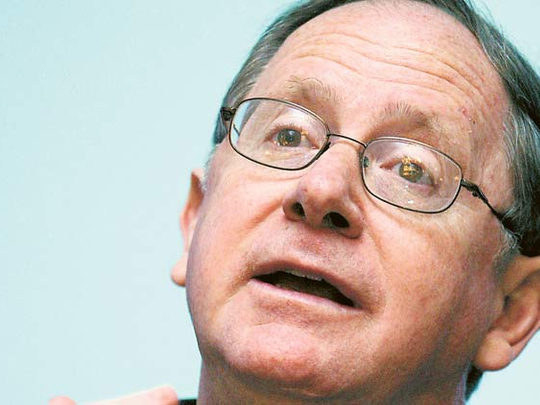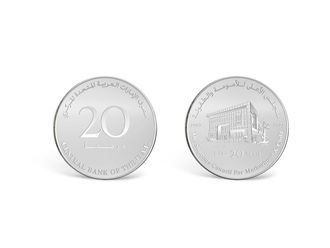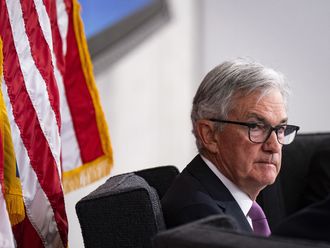
Dubai Under the current global economic environment that is characterised by huge interest rate differentials between the developed world and emerging economies, the Gulf's oil exporting economies are better off with their dollar-pegged currencies, John Greenwood, Invesco's Chief Economist, told Gulf News in an interview.
Greenwood said going by the Mundell-Fleming model of the "Impossible Trinity" developed by economists Robert Mundell and Marcus Fleming, the Gulf countries have little choice but to stick to their pegged regime in the current global context.
The term "Impossible Trinity" talks about the problem of choice among three options at the same time.
The three options are: a fixed exchange rate, free capital movement, and an independent monetary policy. The logic of "Impossible Trinity" says that a country can choose any two at a time, at best.
Suppose a country wants to follow a fixed exchange rate regime, it can either choose free capital movement or an independent monetary policy. Suppose it wants to maintain free capital movement, it will have to compromise on the independence of your monetary policy.
Similarly, if it wants to preserve the independence of its monetary policy and maintain free capital movement, it can't keep a fixed exchange rate system at the same time. In short, no matter what permutations and combinations are used, choosing any of the two options would rule out the third option.
Minimal pressure
While the economies of the Gulf have successfully used pegged currency regimes with free capital flows, for several years volatility in capital inflows and outflows had exerted minimal pressure on domestic currencies in the past.
"With the peg in place, the region's interest rates are tracking US interest rates, consequently there is minimal pressure on currencies from capital inflows and carry trade," said Greenwood. In the absence of fixed peg, Greenwood said the region also would have been exposed to exchange rate pressures faced by countries such as Brazil and emerging economies in Asia.
According to Greenwood, the absence of the peg would have warranted capital controls in the region as implemented by countries such as Thailand, Brazil, Indonesia and Korea and or constant intervention by the central bank in the foreign exchange market to keep the exchange rate at the target.
Imbalance
In case there is any imbalance between the demand and supply of the domestic currency against the foreign currency, there will be pressure on the exchange rate to deviate from the target.
Suppose the inflow of the foreign currency is high. Then the domestic currency may appreciate due to the increase in demand.
In such a situation, the central bank will be required to absorb the excess inflow by purchasing the foreign currency from the market or to lower domestic interest rates so that any inflow due to a difference in the foreign and domestic interest rates is curtailed.
"Although such interventions help the central bank in maintaining the exchange rate stable, in all likelihood it will miss its monetary policy targets such as money supply and interest rate targets. Besides, for effective and quick intervention the country will require a well developed domestic credit market," he said.
Abnormal capital flows
Greenwood, also one of the key architects of the Hong Kong dollar's peg to the US dollar, said currency pegs have proved they can co-exist with free capital flows but monetary authorities of these countries and territories must use macro-prudential controls when abnormal capital flows begin to swell asset prices.
"Control on leverage is one key step that can keep capital inflows causing bubbles.
"Hong Kong has been using it effectively through strict loans to value ratios. In the Gulf, traditionally sovereign wealth funds have been sterilising the impact of oil export earnings," said Greenwood.
Recovery: Balance sheet repair
On the global recovery John Greenwood, Chief Economist at Invesco, said 2011 is likely to be another year of gradual economic recovery in expectations. The developed Western economies, constrained mainly by continued balance-sheet repair in the more over-indebted economies such as the US, UK, Spain and Ireland.
Wherever balance sheets are stressed and in need of repair, the tendency will be for growth and inflation to be lower than otherwise because debt repayment is an inherently deflationary process. By contrast, in the emerging world there are only a few economies where such constraints apply (except perhaps some of the Eastern European economies), and consequently the emerging world is generally not subject to the same debt-derived growth constraints. As a result emerging economies have been able to recover more quickly from the global recession in 2009, and their recovery should continue at a healthy pace in 2011.
Do you save your money in dirhams or dollars? How has it benefited you? Let us know












